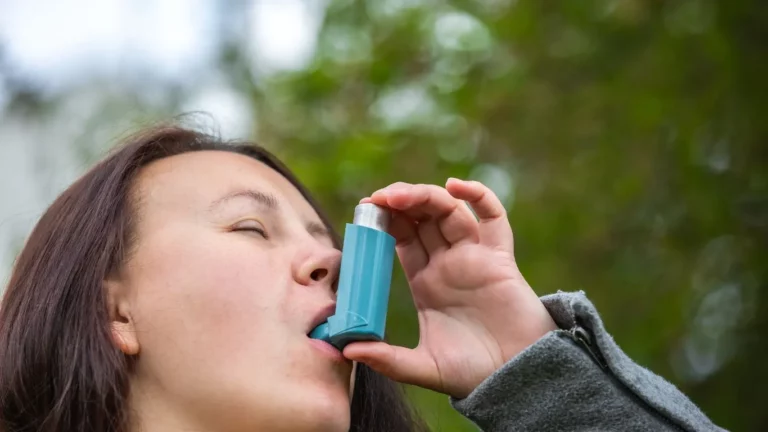Acid Reflux and Throat Pain That Won’t Go Away? Here’s Help
Throat pain that just won’t quit? If you’re like me, you’ve probably brushed it off as a cold, maybe even allergies or dry air. But when it keeps coming back—especially paired with that subtle burn creeping up your chest—you might be looking at something else entirely: acid reflux. Yup, not exactly the glamorous diagnosis, but incredibly common. I didn’t make the connection at first either. Turns out, gastroesophageal reflux disease (GERD) loves to disguise itself in surprising ways—one of them being that persistent ache or tightness in your throat.
What’s Really Behind That Throat Pain?

Let’s break it down: GERD happens when stomach acid backs up into your esophagus. But that acid doesn’t always stop there. Sometimes, it reaches the upper esophagus, even the throat and larynx. When that happens, it’s called laryngopharyngeal reflux (LPR). That’s when the real trouble starts—think sore throat, hoarseness, or even the feeling of something stuck back there (globus sensation, anyone?).
I used to wake up with this scratchy throat that felt like I’d been screaming all night—when I hadn’t even said a word. Turns out, that night-time burn was silently wreaking havoc on my throat tissue.
Common Throat Symptoms from Acid Reflux
- Persistent soreness or burning in the throat
- Hoarseness or voice changes, especially in the morning
- Chronic cough or frequent throat clearing
- Post-nasal drip that doesn’t respond to allergy meds
- A feeling of tightness or a lump in the throat
If any of these sound familiar, you’re not alone. According to the Mayo Clinic, throat discomfort caused by reflux is one of the more overlooked symptoms of GERD—especially in people who don’t get traditional heartburn.
What Causes the Throat to React This Way?

It’s all about exposure. The lining of your throat simply isn’t built to handle stomach acid. Even small amounts can cause inflammation, swelling, and irritation—leading to that raw, painful feeling. This is especially true if reflux happens at night while you sleep and your body can’t naturally clear it out as quickly.
Another sneaky factor? Pepsin. It’s a digestive enzyme that travels with the acid, and it sticks around long after the acid is neutralized. So even if you take an antacid, pepsin can still keep damaging your throat tissue if it gets activated again.
Long story short: It’s not just about acid—it’s about how long your throat is exposed, what enzymes are present, and how well your body clears it out.
Why You Might Not Have Heartburn (But Still Have Reflux)

Welcome to the confusing world of silent reflux. Many people with LPR don’t feel heartburn at all. Instead, they get the weird throat symptoms and assume it’s something else—until it becomes chronic. That’s exactly what happened to me. I kept blaming dry weather, allergies, and even my pillow, not realizing my digestive system was to blame.
If you’re struggling with this and getting no relief from typical allergy or cold treatments, it’s time to consider GERD as a culprit. This guide on atypical GERD symptoms might hit closer to home than you expect.
How Long-Term Throat Exposure Can Lead to Bigger Problems

The body’s not great at healing itself when acid keeps washing over it. Left untreated, throat irritation from reflux can cause complications like:
- Vocal cord nodules – small growths that form due to repeated irritation
- Esophageal strictures – narrowing of the esophagus, making it hard to swallow
- Chronic laryngitis – inflammation of your voice box that can mess with your ability to speak
More serious long-term complications may include Barrett’s esophagus, a precancerous condition caused by repeated exposure to stomach acid. While less common in the throat, it shows just how far-reaching the effects of reflux can be.
When to See a Doctor

If your throat symptoms have lasted more than a couple of weeks—or if they keep returning—it’s smart to get checked. A gastroenterologist may suggest a pH probe test or laryngoscopy to see how far the reflux is traveling and whether it’s damaging your upper airway.
Sometimes, treating GERD early can prevent the need for more serious interventions. There’s a great resource on how GERD is diagnosed if you want to explore testing options.
Daily Habits That Might Be Making It Worse

This part hit home for me: everyday habits can either fuel or fight reflux. Some of the ones I was guilty of (no shame if you are too):
- Eating late at night or lying down right after dinner
- Drinking citrus juices or coffee first thing in the morning
- Wearing tight clothes (guilty, especially during holidays)
- Eating oversized portions—even of “healthy” food
Once I started changing these habits—especially the late-night snacks—I noticed a huge difference in my throat and voice.
If you’re serious about calming your symptoms, this lifestyle tips for GERD article is gold.
What to Eat (and Avoid) When Your Throat Is on Fire

This one’s personal: food is a big trigger for me. I used to love spicy ramen and citrus smoothies—but now? Let’s just say I’ve found equally satisfying alternatives that don’t torch my throat.
Best Soothing Foods for Reflux-Related Throat Pain:
- Oatmeal or plain rice
- Bananas, melons, and pears (low-acid fruits)
- Steamed veggies like broccoli or zucchini
- Herbal teas (especially chamomile and slippery elm)
- Almond milk or non-acidic smoothies
Foods to Avoid Like the Plague (When You’ve Got Throat Pain):
- Tomatoes and citrus fruits
- Chocolate (sadly, yes)
- Mint, onions, and garlic
- Carbonated drinks
- Spicy and fried foods
You can find a more in-depth breakdown on soothing GERD foods in this GERD-friendly diet guide.
How to Actually Get Relief (Not Just Temporary Fixes)

The turning point for me wasn’t just identifying the cause—it was realizing that my “occasional” throat pain needed more than a peppermint lozenge or warm tea. While those felt comforting in the moment, they weren’t solving the root problem. I needed an actual strategy. And spoiler: It wasn’t all about popping pills.
Medications That Might Help
- Antacids – for quick but short-term relief
- H2 blockers like famotidine – reduce acid production moderately
- Proton Pump Inhibitors (PPIs) like omeprazole – more powerful, long-acting options
I started with PPIs as recommended by my gastroenterologist, and within a couple weeks, that raw morning throat feeling eased off significantly. But these meds come with caveats. Long-term use may affect nutrient absorption and gut flora, so always consult your doc before sticking with them indefinitely. This detailed breakdown on PPIs for GERD is worth reading.
Don’t Rely on Medication Alone
It’s tempting to just take a pill and call it a day, but healing throat damage caused by reflux requires a multi-pronged approach. That means rethinking how—and when—you eat, how you sleep, and even how you manage stress (yup, stress plays a big role here too).
Natural Remedies That Actually Work

If you’re not a fan of long-term meds, or just want some additional support, there are plenty of natural ways to soothe GERD and protect your throat. I’ve tried nearly all of these—some with better results than others.
My Tried-And-True Natural Soothers
- Slippery elm tea – coats and calms irritated throat tissue
- Aloe vera juice – just 1 oz diluted with water before meals made a difference
- DGL licorice – not the candy kind! Helps reduce inflammation in the esophagus
- Chamomile tea – calming and anti-inflammatory
- Honey (raw, preferably Manuka) – a gentle soother for nighttime flare-ups
Some days I skipped the meds entirely and relied on a slippery elm-honey-chamomile combo before bed. It’s not magic, but it certainly helped reduce the rough mornings.
How Sleep Position Can Make (or Break) Your Throat

If reflux is hitting you hardest at night, you’re not imagining it. When you lie flat, gravity’s no longer on your side—making it easier for stomach acid to sneak into your esophagus and throat. The first time I tried sleeping on an incline, I was skeptical. But after just a few nights? Total game changer.
Top Sleeping Adjustments to Ease Nighttime Throat Pain
- Elevate the head of your bed by 6 to 8 inches (not just pillows—go for the whole bed or a wedge)
- Sleep on your left side – this position makes it harder for acid to flow upward
- Avoid eating 2-3 hours before bed
- Skip the late-night wine, citrus, or chocolate (sorry, I know)
These small tweaks made a bigger difference than I expected. Here’s a great guide to GERD pillows if you’re ready to level up your sleep setup.
Throat-Safe Daily Habits You Can Start Today

Consistency is the secret sauce here. You don’t need a total life overhaul to feel better—but a few habits can really support your healing process.
- Chew food slowly – rushed meals = incomplete digestion = reflux risk
- Hydrate throughout the day, but avoid chugging water during meals
- Stay upright for 30-60 minutes after eating
- Skip the gum and mints (especially peppermint – it relaxes the LES muscle)
- Track your triggers – journaling helped me find sneaky culprits like cucumbers and yogurt
I also found this deep dive on caffeine and reflux helpful when I wasn’t ready to give up my morning cup completely (spoiler: decaf isn’t always the fix).
When It’s Not Just Reflux: Red Flags to Watch

While most GERD-related throat issues are manageable, sometimes symptoms can point to more serious conditions—like vocal cord damage or even pre-cancerous changes in the esophagus. If you notice:
- Difficulty swallowing or pain when swallowing
- Frequent choking or coughing during meals
- Unexplained weight loss
- Throat pain that worsens even with treatment
…don’t tough it out. These warrant a trip to your ENT or GI specialist. You can learn more about how GERD progresses and what complications can arise in this comprehensive GERD symptoms guide.
Regaining Your Voice, Comfort, and Confidence

If you’re reading this and nodding along because the symptoms hit a little too close to home, here’s some encouragement: relief is totally within reach. I’ve gone from waking up with a sandpaper throat to finally feeling normal again—and I didn’t have to give up all my favorite foods (just learned to eat them smarter).
Take the time to listen to your body, tweak what isn’t working, and don’t hesitate to get help. You deserve to speak, swallow, and sing (if that’s your thing) without discomfort.
The journey to healing from GERD-induced throat pain isn’t always linear, but it is doable. Trust me—I’ve been there.

Camellia Wulansari is a dedicated Medical Assistant at a local clinic and a passionate health writer at Healthusias.com. With years of hands-on experience in patient care and a deep interest in preventive medicine, she bridges the gap between clinical knowledge and accessible health information. Camellia specializes in writing about digestive health, chronic conditions like GERD and hypertension, respiratory issues, and autoimmune diseases, aiming to empower readers with practical, easy-to-understand insights. When she’s not assisting patients or writing, you’ll find her enjoying quiet mornings with coffee and a medical journal in hand—or jamming to her favorite metal band, Lamb of God.







